Center for Arts, Migration, and Entrepreneurship
Faculty-Driven Research 2022-23
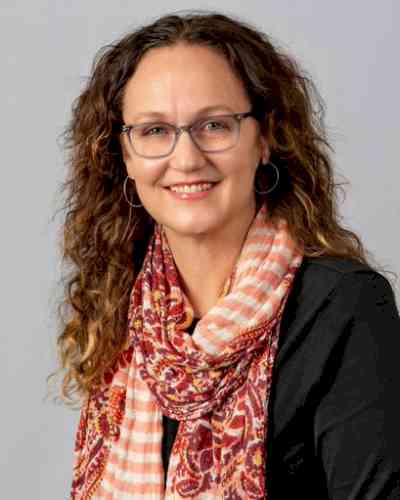
The Africa Centers for Disease Control, created within the African Union strategic framework Agenda 2063: The Africa We Want, highlights the importance of addressing health as a key aspect of “transforming Africa into the global powerhouse of the future”. At the heart this goal are considerations of African countries as creators as well as consumers of health innovations. Through an anthropological study co-constructed with artists and interdisciplinary researchers, I will examine how scientific knowledge about COVID-19 vaccination and antimicrobial resistance (AMR) is imagined and re-shaped by the ‘orange economy’ and cultural industries in Ghana and Burkina Faso. These two field sites offer a way to examine how diverse social and health contexts with different histories are responding to similar infectious threats.
The ‘orange economy’ of the arts is a resource for health communication and driver of development. Artists are routinely engaged in creating materials and messages that are disseminated by global health programs, as well as responding to local priorities and risks. This project explores how artists and the creators of health communication materials construct and shape narratives. Three main questions will guide this work: 1) How are visions of the future and the ‘Africa we want’ expressed through health narratives about COVID-19 vaccination and AMR? 2) How does the orange economy challenge, complement, and contribute to health and development programs? 3) What shared visual languages are used to express risk and shape social response?
Dr. Kelley Sams traveled to Marseille, France in summer 2021 to participate in a planning workshop for a study examining how scientific knowledge about health is imagined and re-shaped by the ‘orange economy’ and cultural industries in Ghana and Burkina Faso. During this workshop, colleagues and Dr. Sams discussed different approaches to studying how the arts and health communication shape understandings of COVID-19 vaccination and antimicrobial resistance (AMR). Along with researchers Blandine Bila (Institute for Research in Health Sciences in Burkina Faso), Daniel Kojo Arhinful (Noguchi Memorial Institute for Medical Research in Ghana) and Carine Baxerres and Aurélia Souares from AMR-B-CHANGE, we drafted an application for funding to add an arts-focused component to an existing research program.
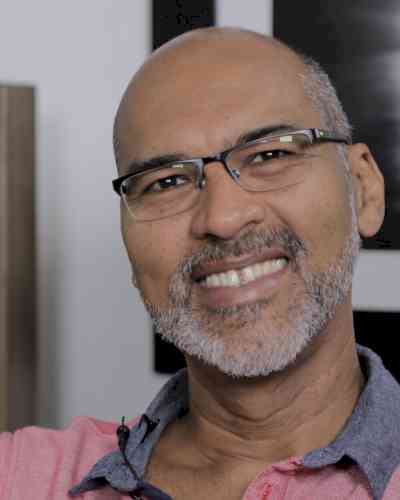
The purpose of this project is to create a dance film titled “Like Onions.” This film project is an opportunity for research, exploration and experimentation with film as a viable medium for the performance/presentation of dance, more specifically Afro-Fusion dance, and it serves as an expansion of Professor Soledade’s research interests.
Professor Soledade’s Afro-Fusion approach to dance has been mostly realized through stage performances. This project is an opportunity to use Afro-Fusion concepts in a different medium, film. My objective is to create a dance film offers an opportunity to submit the final work to and be considered for national and international dance film festivals and expands research to include investigations beyond live stage performance.
Like Onions was Professor Augusto Soledade’s first dance film, an exploration of his artistic sensibilities as a non-trained filmmaker. In creating this work, he was able to understand firsthand the various stages of film production and gathered a great team of professionals in Salvador, Bahia, Brazil. Team of professionals included: performer, scriptwriter, production manager, production assistant, art director, colorist, scene director, director of photography, editor, and composer. In addition, collaborating with an international team provided a solid opportunity to create beyond the confines of one’s own cultural and creative habits. His main goal in transposing concert dance to film was about investigating how to bring depth to the character through film as a medium of expression and present the narrative in ways that could not be reproduced on the concert stage. Professor Soledade intends to explore and understand further in future dance film projects the notion of rhythm, timing, and flow of the narrative. Onions was selected to be screened at the Black Lives Rising Film Festival in New York City in December 2021 and the Screen Dance Miami Festival in January 2022.

Oxowusi Film Project is a new project that aims to transpose choreography created for the stage into a dance film. The process to achieve such goal will offer the opportunity to investigate the interdisciplinary elements of dance and film in order to apply Afro-Fusion concepts that will affect the artistic outcome of the work and understand film as a viable medium for the performance/presentation of Afro-Fusion dance.
The choreography titled “Oxowusi”, by Augusto Soledade, is based on a Yoruba tale of how a monstrous bird was defeated by the hunter with just one arrow after prominent hunters who could shoot forty and twenty arrows at a time had failed. This is a tale that lives on in Brazil through the Yoruba based deity Oxossi in the Afro-Brazilian religion, Candomblé.
In the dance film “Oxowusi”, Soledade will rely on the initiation process that is an integral part of Candomblé as the base of investigation. Three specific moments appear with great potential for artistic exploration: Conflict, Reflexion and Revelation. Each of these moments will serve as the backdrop for the telling of the Oxowusi tale. Two narratives will be presented side-by-side revealing connections with ancestrality and spirituality.
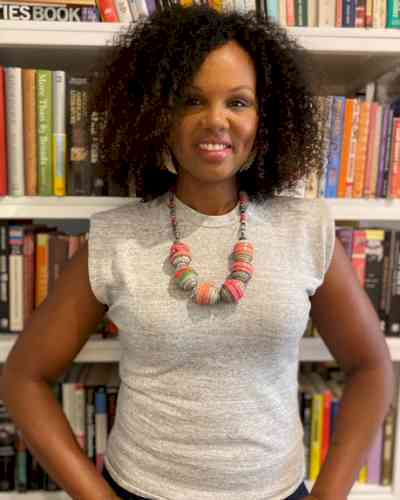
The Global Colonizer Reparation Index is an ongoing project that centers two core values: whole truth and healing. We believe that a more inclusive and truthful recording of world history will facilitate the knowledge and healing required to advance equity and justice. Desktop research is required to identify and curate target content sets and relevant creators/influencers. This early research will inform the approach for our #AskAnElder content generation plan. Given the ML/AI grounding of the overall project, we are considering what it would take to decolonize AI in this context.
More information on the project’s origin story here: https://twentythirty.com/article/data-decolonization-saidah-nash-carter
The storytelling component of The GCRI project, Ask An Elder, was able to launch its social media and youth ambassador intern program thanks to the CAME grant funding. The interns are responsible for the social media experience and reaching out to build community around the work. Saidah Nash Carter also spoke about this important work when CAME hosted the "Women Entrepreneurship, AI + Emerging Tech in Africa" event on September 27, 2022.
Check out event recording where Saidah Nash Carter shared this project focused on "Healing and Human Connection," and "Truth and Accountability" in relation to data and technology, specifically through her project "Ask an Elder".
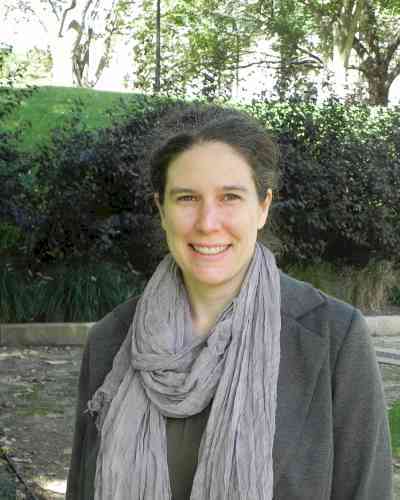
Our project, "African Performing Arts Creative Collaborative," will support the creation of a space for faculty, students, and community members to share and combine resources for collaborative creative projects with master guest artists related to African Performing Arts, including dance, music, theater, and culture.
This funding will propel the existing collaborations between the School of Theater and Dance and School of Music and will further our creative collaborations and outreach in a culturally grounded, cross-disciplinary, and interactive environment. This funding will impact the African Popular Music Ensemble in the School of Music and the Agbedidi Production in the School of Theatre and Dance and will help strengthen these collaborations as well as build connections across other colleges across UF. We plan to use the CAME funds to invite the Zimbabwean musician Zivanai Masango to campus in October 2022 to offer classroom workshops, and to contribute to the collaborative performances our ensembles present in December 2022. Zivanai Masango is a Zimbabwean-born multi-instrumentalist and vocalist currently residing in Colorado who has performed with Zimbabwe greats Thomas Mapfumo and Oliver Mtukudzi. The performances will take place in early December during the Agbedidi Africa weekend, featuring live music in combination with the dance performance. We hope that by bringing master guest artists into our collaboration that the intersections that they offer will invite collaborations across more disciplines, centers, colleges and communities.
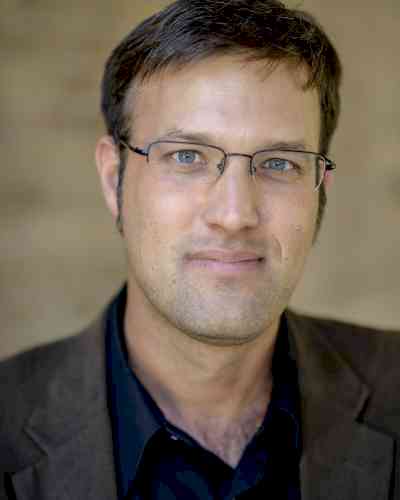
Jazz is migratory and diasporic by definition. From its inception, jazz has fused European and African elements, developing initially in New Orleans. Its principal practitioners have been African American and the music sits firmly within the tradition of Black music. For this reason, it has always been discriminated against in the academy.
Jazz would seem to be a music offering everything academics value: it contains a richly continuous spectrum of music—often within a single decade—from tonal to atonal, improvised to composed (sometimes notated, sometimes not), complex to simple, African to European, “high” to “low,” solo to orchestral, and vocal to instrumental; it has a lengthy and well-developed theoretical tradition, both inside and outside of academia; it is frequently described as “America’s classical music”; and it is an unusually egalitarian art form in many respects, from its collective and improvisatory nature to the diversity of its audience and practitioners.
Yet, the amount of attention, respect, and resources accorded to jazz in academia is wildly disproportionate to its contributions to music and music theory.
This project entails production of my sixth commercial recording. The album, Perpetuum Mobile, consists entirely of my own original material, is being recorded with my Seattle-based quintet, and will be released through Origin Records’ OA2 division.
Perpetuum Mobile explores the rich terrain of possibilities opened up by our previous cover of Steve Reich’s “Piano Phase,” released on Three-Part Odyssey (2011). The album presents of a series of ten post-minimalist pieces articulating a cohesive large-scale statement and exploring numerous rhythmic techniques: polyrhythm, polymeter, odd/mixed meter, additive/subtractive rhythm, metric displacement, phasing, rhythmic ambiguity, and metric modulation.
The post-minimalist aesthetic allows me to reach a middleground between the pure improvisation of my recent solo project and the more circumscribed role I have often given myself in the quintet in order to facilitate collective improvisation. This will be achieved in concrete terms through the use of sketches that define the piece and focus the band, but also allow for an unusual degree of spontaneity.
Completion is expected in 2024.
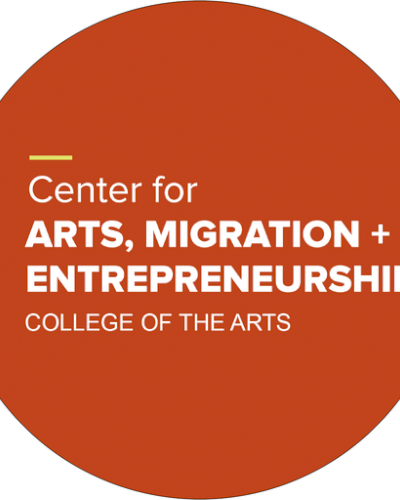
Every day, an average of 316 people are shot in America. 106 die, and 210 survive. Unfortunately, more LatinX and Black Communities are bearing the brunt.
Reverberations is a single-channel video work based on documenting the experiences of survivors of shooting violence. The artwork is a projection of silhouettes of survivors and their families sharing their stories in their voices. These stories look at shooting violence from the perspective of both physical and mental trauma caused by the events, the continuing economic implication of living within the context of the space where the incident took place, and the ongoing financial ramifications of healthcare and possible legal expenses. The mirror allows the viewer to be metaphorically positioned in the same context as the survivor. Both empathetically implicate the viewer and have them standing together with the survivor, indicating that no one is above such an experience. The cracked mirror with a bullet hole is a metaphor for the fracture that these events induce. Similar to the difficulty of mending glass, the fragility of human suffering and trauma is not easy to fix. It is reflected and echoed in the lives of survivors. Ongoing and live-streamed data will be shared in the corners of the mirror about the national impact of gun violence.
Connect with the Center for Arts, Migration, and Entrepreneurship
Keep up with the latest news about faculty, alumni, friends and current students.
Social Media
Admissions Questions?
Request Information